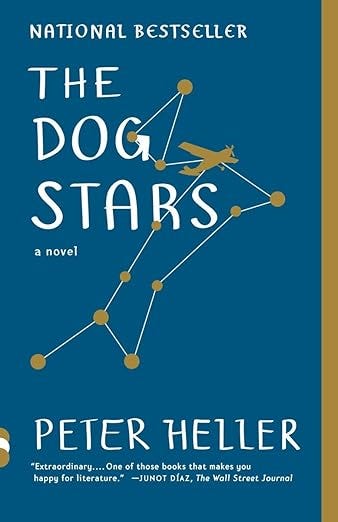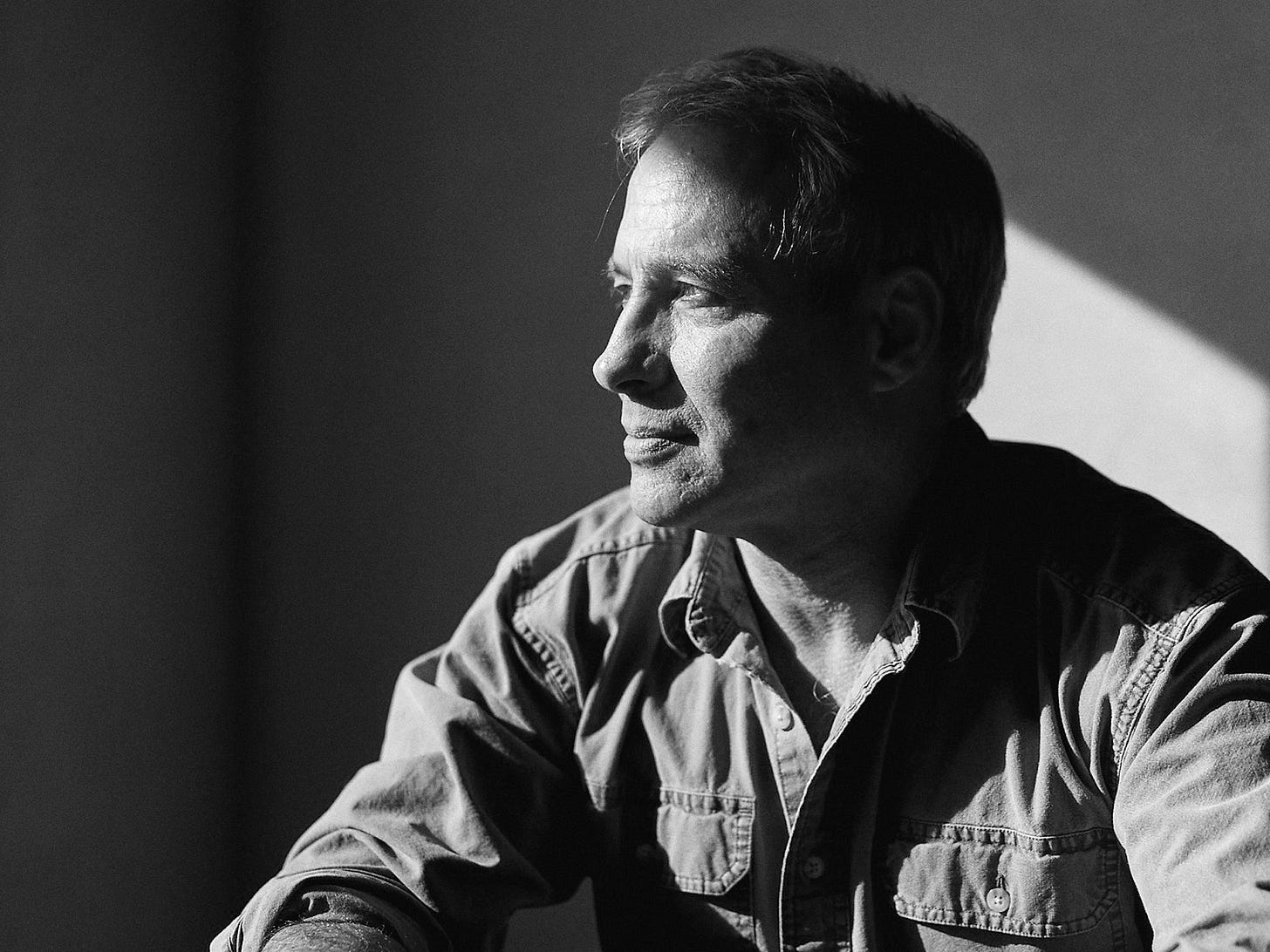“Is it possible to love so desperately that life is unbearable? I don't mean unrequited, I mean being in the love. In the midst of it and desperate. Because knowing it will end, because everything does. End.”
― Peter Heller, The Dog Stars
Genre: Dystopian
My rating: 4 out of 5 stars
The Dog Stars is set in a world ravaged by a flu pandemic that has wiped out most of humanity. The novel follows Hig, a pilot who lives in a remote airport with his dog, Jasper, and his trigger-happy survivalist companion, Bangley.
Hig is not just a man surviving. He is a man searching for meaning in a world where meaning seems to have disappeared completely. His memories of the pre-apocalyptic world, particularly of his wife and the life he once knew, haunt him, driving much of the emotional weight of the story.
Bangley, on the other hand, cold and pragmatic, represents the hardened edge of survivalism and follows a shoot first, ask questions later philosophy. Hig doesn’t agree, but is unable to persuade him into more compassionate stance. Since he’s a pilot, Bangley finds him useful.
The relationship between Hig and his dog Jasper is one of the novel’s most poignant elements. In this lonely and hostile world, Jasper’s presence provides Hig with a sense of purpose and companionship, that is, until he dies of old age.
“They bred dogs for everything else, even diving for fish, why didn't they breed them to live longer, to live as long as a man?”
Jasper’s passing is the catalyst for his next life altering adventure. He decides to embark on a dangerous journey to find a mysterious voice he once heard on the radio. He only has enough fuel to go a certain distance, but his enduring hope pushes him beyond the point of no return to find human connection, which he does, and I’ll leave you with the book to find out what lies in store for old Hig.
The Dog Stars is not your typical post-apocalyptic thriller. While there are moments of tension and violence, the novel is more introspective, focusing on the emotional and psychological toll of surviving in a desolate world. It’s a meditation on grief, loneliness, and the enduring need for connection. Heller's descriptions of the natural world—vivid and reverent—offer a stark contrast to the devastation, reminding readers of both the beauty and indifference of nature.
The lack of quotation marks was a bit irritating at first, but you get used to that. Also, I’ve heard critiques of first person narratives from people who bore with repetitive use of the word “I.” Thought it was a daring choice for Heller to simply leave it out altogether—just leaves it out (like the start of this sentence). And it works.
If you enjoyed this book review, check these out!





